- Home
- Bette Lee Crosby
The Loft Page 15
The Loft Read online
Page 15
Early the next morning Martha carries in a crocheted afghan and surreptitiously slides it across the arm of Annie’s chair. When the other nurses question where the afghan came from, Martha says nothing. That afternoon is the first and only time her fellow nurses have seen Martha looking quite so happy.
Before the week is out, everyone has established a routine of coming and going. Laura comes in the morning and visits. She reminds Oliver of his childhood: a red dump truck, his big wheel bicycle and rainy days of baking cookies together. When she speaks of these things her voice often falters and tears fall, but Oliver remains the same.
In the afternoon Ethan visits. He talks about the things they’ve shared: football games, fishing trips, camping expeditions.
“Remember that Thanksgiving we camped at Shenandoah Park? Remember how you and Charlie wanted to catch your own fish for dinner, and we ended up eating baloney sandwiches?”
The spark of remembering is obvious in the fondness of Ethan’s words, but it does nothing to change Oliver.
Charlie calls every morning and again in the evening. He asks how Oliver is doing and when Annie says there has been no change she can hear the sorrow in his sigh. “I was hoping…” he says, but the words end there.
Max also checks in every day. She comes to visit but doesn’t stay long, because the ICU allows only two visitors at a time and there are others who need to be with Oliver. Max has no real memories to contribute, but she is concerned about Annie.
“Call me if you need anything,” she says. “Anything at all.”
On Friday Annie does call.
“They said I can shower in the nurse’s lounge,” she tells Max. “Can you stop by the house and grab some clean clothes for me?”
“Sure,” Max says. “No problem.”
That same afternoon she brings a bag with clothes, toiletries and a jar of dandelion tea.
“I know how much you enjoy this, so I brewed a pot.”
“You actually took time to brew a pot of tea?” Annie asks.
“This one time,” Max laughs. “That’s it. Don’t expect I’ll do it again.”
Although she says this, the truth is Max would do anything in the world for Annie. Anything. Unfortunately there is nothing she or anyone else can do to change the way things are. Doing nothing is harder than anything Annie might ask for.
Ophelia also visits. She comes with the driver of the Baylor car. He waits in the lobby while she comes upstairs.
“I understand what you’re going through,” she tells Annie, “and my heart aches for you.”
“Don’t worry about me,” Annie says. “It’s Oliver we have to worry about.”
Although Annie says “don’t worry about me,” the truth is she looks almost as bad as Oliver. She dozes from time to time but seldom sleeps. Her eyes have gone from violet to the steely grey of Ophelia’s. Sometimes she nibbles at the food on the dinner trays, but more often than not she pushes the plate back and leaves the meal untouched.
In the five days she has been here, Annie has shed a million tears. At night when the ward is silent the nurses hear her talking to Oliver, sometimes praying and sometimes reminding him of why he needs to live.
“Please, Oliver,” she begs. “Please. Do you remember the day we were married? You can’t possibly forget the church bells. Or the party. Remember those nights in the loft? You’ve got to come back, Oliver. All this is nothing without you. I’m nothing without you.”
Friday night is the fifth night. Annie has counted every minute, every hour and, perhaps most painful of all, every day. A week, Doctor Sharma said. A week, and then Oliver’s chances of recovery grow slimmer.
This night Annie does not sleep at all. She holds his hand in hers, touches his face and whispers in his ear.
“Please don’t give up,” she says. “Please, Oliver. I’m going to stay here until you open your eyes and talk to me. I’m not going home. Not ever. Not until you come home with me.”
She drops her head against his chest and lies there listening to his heartbeat. He is alive. He needs only to open his eyes.
“Please open your eyes,” she begs. “Don’t do this. The accident is over now. You’re going to be okay. All you have to do is open your eyes. Please, Oliver, please…”
When Doctor Sharma arrives Saturday morning, Annie is still lying in the same position. The sheet is soaked through with her tears.
“What’s this?” he asks and gently lifts her head.
Annie’s face is gaunt and her eyes swollen from the tears. She has the look of a woman who has been drained of life.
“This is not good,” Sharma says. “Not good at all.”
“I know,” Annie says wearily. “It’s five days.”
Using his index finger Sharma tugs on Annie’s cheek and looks at the inside rim of her left eye. “Not good,” he repeats.
“I know it’s not good.” A tear overflows Annie’s eye. “Can’t you do something?”
“Yes,” Sharma nods. “I can give you a pill for sleep and a nutritional supplement.”
“Me? I’m not talking about me, I’m talking about Oliver!”
“Oliver will wake when he is ready,” Sharma says. “There is nothing to change that. But you getting sick I can change.”
“There’s nothing wrong with—”
“You are dehydrated, and from the look of you I would say also malnourished. Do you not eat the food you are given?”
“Some,” Annie says. She knows he has sent the food, and such an answer seems so ungrateful. “I’m sorry but I haven’t had much of an appet—”
“I will make a deal with you,” Sharma says. “You let me take a blood test to make certain you are okay, then I give you a pill for sleeping and you agree to eat the food you are sent. If these things happen, I will allow you to stay and be with Mister Doyle.”
“Allow me to stay?” Annie’s voice has a note of disbelief in it.
“Yes,” Sharma says. “If you do not agree to these things, I will say there are to be no visitors.”
“You wouldn’t.”
He gives a firm and unyielding nod. “I would.”
Doctor Rahul Sharma
Perhaps I should keep my nose on my face, but I cannot stand by and see a nice girl like Annie make herself sick.
To become a doctor I vowed that I will do no harm. Is it not harm to see a person suffering and turn your eyes to another place? I say yes. If you do no harm, then you must do good.
To do good you give a kindness and expect no pay. For the business of healing you receive pay, but for a kindness you receive only the joy of knowing you have done good.
This is as The Holy One declared, and I obey.
Many people are sick, but their loved ones do not stay by their side as this Annie Doyle does. She is a person worthy of a good deed.
If you would say it is to muddle in someone else’s business, then I would say I am sorry. But even if I say I am sorry, I would not do a different thing because I believe what I do is as it should be.
If this is to be called poking my face into another person’s business, then so be it.
Annie’s Dream
Given no choice, Annie agrees to Doctor Sharma’s terms. That same morning he makes a second trip to Oliver’s room. This time, he hands her two sample size bottles of vitamin B+ and a full size bottle of multivitamins.
“These you take two of,” he tells her.
Annie frowns at the label. “It says one a day.”
“For you it is two. It is one when I say one.”
From someone else this might sound bossy or argumentative, but from Rahul Sharma it is not. His manner is gentle, and his expression that of a worried old woman.
Once Annie has swallowed the pills, she sits in the chair and allows him to draw a vial of blood.
“I’m sorry to be all this trouble,” she says.
“This is not trouble for me,” Sharma says. “Caring for sick people is my job, but so much worry is bad for yo
u.”
He looks at her with a furrowed brow. “Worry does not change anything. Worry makes people sick; then I have two sick people instead of one.”
Annie gives him a sad smile. “It’s hard not to worry when someone you love—”
“Did you not listen? Worry changes nothing.”
“But you said if Oliver didn’t wake up in a week, his chances—”
“No, no, no.” Sharma waves his palm in the air. “I said it is better if he wakes up sooner.”
“Oh.” Annie gives a sigh of relief. “So even if it’s longer than a week—”
“Some patients come back fast, an hour, a day, maybe two. Others take longer, but they are still okay.” He doesn’t mention that some never come out of a coma; this is something Annie doesn’t need to hear. “Your Oliver will open his eyes when it is his time.”
“Tomorrow it will be a week—”
“No matter,” Sharma says. “But when it happens, he will need therapy. So you need to be strong enough to help him—”
“Oh, I will,” Annie assures him. “I definitely will.”
“A sick woman is not strong. If you are to be there for what your Oliver needs, you must eat food, take vitamins and sleep.”
That afternoon when the lunch tray arrives, Annie finishes everything. Although her stomach feels queasy at first, after she eats a slice of bread it is better. That in itself is rather odd, since plain white bread has always been something she turned her nose up at. Biscuits, anytime. Crusty rolls, yes. But plain white bread—almost never.
When the dinner tray arrives it is the same way. Annie eats the bread and then twenty minutes later has appetite enough for the remainder of the food.
That evening when Doctor Sharma makes his last visit of the day, he gives Annie a shot. It is a mild sedative, enough to make her sleep.
Shortly after eight o’clock the sound of soft snores can be heard coming from Oliver’s room.
~ ~ ~
As the days have lumbered by Annie has listened to the stories of Oliver’s life, each story taken from a memory so vivid she can imagine it as it was. When she finally drifts off to sleep, the images of what has been told come to her.
Oliver, a baby in the young Laura’s arms.
In less than a heartbeat he is a toddler filling a dump truck with sand. Before she has had her fill of this vision, a gust of wind blows and the sand becomes a snowstorm. For a moment there is only white, but when the air clears Oliver is a teenager. A boy who is all arms and legs but with the smile she loves. He laughingly brings his hand from behind his back and offers out a bouquet of pink peonies. Annie recognizes the flowers; it is her wedding bouquet. She reaches out to take hold of it, and suddenly he is gone. Swallowed up by a crowd of people.
“Come back!” she screams, but no sound comes from her mouth.
Helplessly she wanders through the crowd until she at last comes upon Oliver. He is now dressed in a cap and gown. A graduation no doubt, but which one is not clear.
“Oliver,” Annie calls out. “Oliver, I’m here!”
To him she is invisible and without sound.
If she can only touch him… Annie tries to move, but her feet seem glued to the ground. Regardless of how she tugs and pulls, she cannot free herself. When she bends to loosen her feet from her shoes, she hears the sound of laughter.
“It’s too soon,” a voice says.
Annie lifts her head and looks behind her. No one is there. When she glances back Oliver is gone.
“I told you,” the voice says. “It is too soon!”
“If it’s too soon,” she screams, “then take me to the right time and place! Take me to where—”
Again a rush of air swirls around her. It is thick and hard like sand or sleet. It lifts her from the ground, and there is no longer anything to hold on to. No hand to grab, no earth beneath her feet. Annie covers her eyes, and when she reopens them she is on an unfamiliar street.
Across from where she stands there is a courthouse. Two figures stand on the steps. She moves closer. It is Oliver and his daddy. Ethan’s hair is just starting to gray at the temples, and Oliver looks younger than he did the day she met him.
She calls out, but there is no sound to her words. She can do nothing other than stand and watch.
Ethan gives his son the book he is holding. Oliver looks at the inside page, then smiles and wraps his arms around his father.
Annie moves closer. She wants to see the book and hear what they are saying. As she steps out to cross the street there is a loud crash. The sound of glass shattering, the clang of metal…
Annie wakes with a start.
“I’m so sorry,” the aid says, “I came to pick up your tray, and it slid from my hand.” She scrambles to her knees retrieving pieces of the broken dinner plate and setting the metal wastebasket back on its feet.
“That’s okay,” Annie says. “Accidents happen.”
She scoots from her chair and bends to help the girl, but as she reaches down the floor comes up to meet her. That’s the last thing Annie remembers.
When she comes to, a perturbed-looking Phyllis stands over her.
“Dehydration,” she growls. “Just look at this.” She pinches Annie’s arm and the wrinkles remain. “When the skin doesn’t bounce back that’s a sure sign.”
She hands Annie a bottle of Gatorade. “Drink.”
Annie downs several swallows, then says, “I had a dream—”
“It was no dream,” Phyllis says. “You fainted.”
“Before that,” Annie says. She wants to explain the dream but doesn’t herself understand it.
The Book
After everything has again quieted down, Annie stands beside Oliver’s bed and holds his hand.
“Please, Oliver,” she says wearily. “Please tell me what memory is powerful enough to make you fight your way back into this world.”
There is no answer, just the whoosh of the breathing machine and the occasional beep of a monitor.
Annie thinks back to the day she first came to Memory House. Back then she laughed at the thought of a memory attached to anything. Of course, that was before she discovered the bicycle. It was before she found the book that led her to…
The book.
“That’s it!” she shouts. “It’s the book!”
Phyllis comes running in. “Are you alright?”
Annie grabs Phyllis and dances her around. “It’s the book!”
“What’s wrong with you?” Phyllis asks and wriggles free.
“The book is Oliver’s most powerful memory,” Annie says. “He told me the proudest moment of his life was the day he was sworn in as a judge. That’s when his daddy gave him the book dedicated to him.”
“I don’t see what—”
Annie doesn’t even slow down. “Don’t you see? That was Oliver’s proudest moment, but his happiest moment was when I showed up at his door.”
“I still don’t get it,” Phyllis says.
“The book is what brought me there. I found it when I was working at the library, and the minute I touched it I knew Ethan Allen Doyle was the bicycle boy I’d been searching for.”
“Ethan Allen? Oliver’s daddy?”
“Yes.” Annie nods. “Ethan Allen wrote that book, and it has powerful memories stuck to it. It brought Oliver and me together, and now it’s going to bring him out of this coma.”
Phyllis eyes Annie with a worried look. “Maybe that sedative was a bit too strong.”
Annie laughs, and this time her laughter has a tinge of happiness attached to it. Even though it is one o’clock in the morning, she pulls out her cell phone and punches in the number for Memory House.
Laura and Ethan are already in bed, but neither of them is sleeping. Sleep is difficult to come by these days. Like Annie they spend endless hours thinking about Oliver.
Laura is his mother; she worries as any mother would worry. Ethan frets because he has no idea of how to make things better. It is a father’s j
ob to fix things, he tells himself, yet this is something he cannot fix.
When the telephone jangles in the dead of night, Laura clutches her heart. “Oh, dear God,” she says. “Please don’t tell me…”
Ethan pushes himself from the bed and hurries to the telephone. He answers with a tentative, “Hello.”
“I figured it out,” Annie says. The words come so quickly they bump up against each other, and Ethan has to ask her to repeat what she’s said.
She tells him the same story she has told Phyllis.
“The book is what ties everything together. It gave Oliver his proudest and happiest moment,” she says.
Ethan looks at Laura, signals that there is no emergency, then asks, “What book?”
“The Wisdom of Judicial Judgment in the Practice of Law.”
He thinks back and catches the image of that day standing on the courthouse steps. “And you think that’s it?”
“I’m almost positive,” Annie replies.
She tells him Oliver’s copy of the book is on the bookshelf in the loft. “Second shelf on the right hand side. Would you get it and bring it to me?”
“Now?” he asks.
“The sooner the better,” Annie says. “I’m anxious to get started.”
~ ~ ~
Once Annie has the book, she rests it on the side of the bed and moves Oliver’s hand onto the open cover. She turns to the first page and starts to read.
“This book is dedicated to my son, the Honorable Oliver E. Doyle, Judge, Eastern District Court of Virginia.”
Annie turns the page and continues reading. “The mission of the Judicial System is to insure that disputes are resolved justly, promptly and economically. The components necessary to discharge this function constitute a court system unified in its structure and administration, competent, honest judges and court personnel, a court with uniform rules of practice and procedure…”

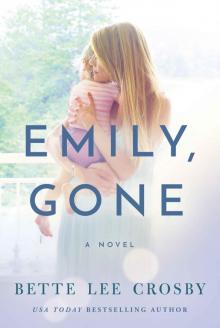 Emily, Gone
Emily, Gone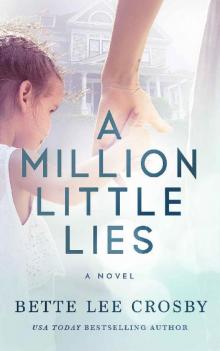 A Million Little Lies
A Million Little Lies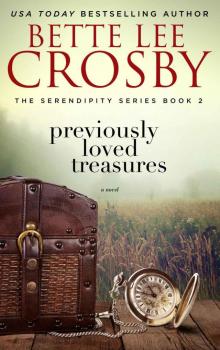 Previously Loved Treasures
Previously Loved Treasures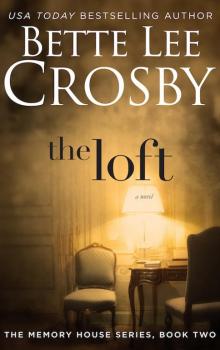 The Loft
The Loft Spare Change
Spare Change Memory House: Memory House Collection (Memory House Series Book 1)
Memory House: Memory House Collection (Memory House Series Book 1)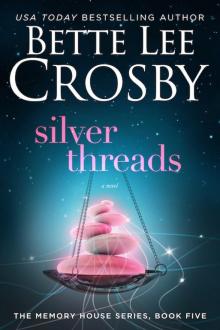 Silver Threads
Silver Threads Wishing for Wonderful: The Serendipity Series, Book 3
Wishing for Wonderful: The Serendipity Series, Book 3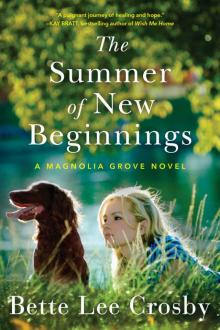 The Summer of New Beginnings: A Magnolia Grove Novel
The Summer of New Beginnings: A Magnolia Grove Novel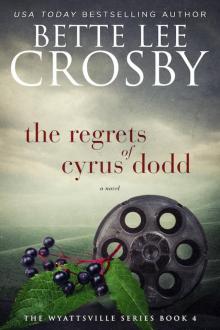 The Regrets of Cyrus Dodd
The Regrets of Cyrus Dodd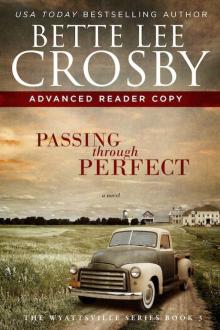 Passing Through Perfect
Passing Through Perfect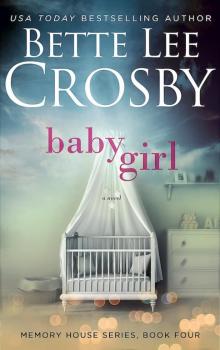 Baby Girl
Baby Girl Jubilee's Journey
Jubilee's Journey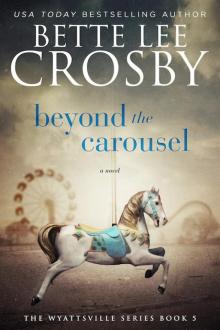 Beyond the Carousel
Beyond the Carousel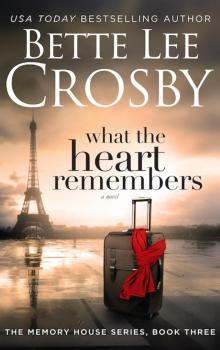 What the Heart Remembers
What the Heart Remembers Cupid's Christmas
Cupid's Christmas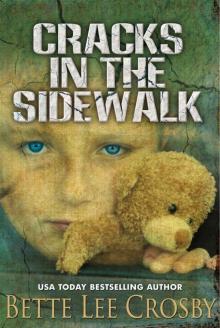 Cracks in the Sidewalk
Cracks in the Sidewalk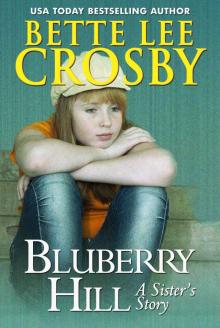 Blueberry Hill
Blueberry Hill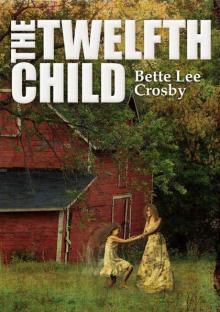 The Twelfth Child
The Twelfth Child A Year of Extraordinary Moments (A Magnolia Grove Novel)
A Year of Extraordinary Moments (A Magnolia Grove Novel)